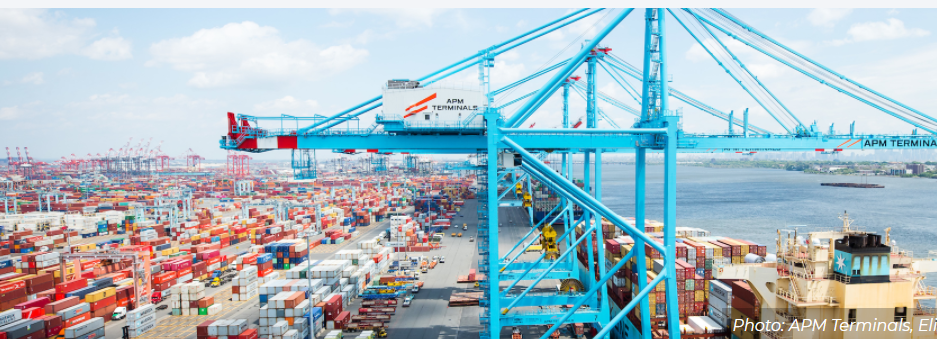By Kingsley Anaroke
Nigeria has been besieged by the outbreak of violence and conflicts which have over the years claimed thousands of lives and property.
This is owing to the activities of kidnappers, armed robbers, sea pirates, political thugs, arms traffickers and the extremist group, Boko Haram.
Boko Haram has in the last decade killed over 25,000 people in North East Nigeria. The group has sustained its attacks on the nation, brutally killing thousands of people including soldiers, women and children.
All these armed activities continue unabated, partly because of unchecked arms proliferation in the country. These groups also use locally made arms, but their most sophisticated arms are usually imported, concealed and smuggled into the country via seaports.
These ceaseless tragic developments have spurred the impression that the nation’s security intelligence has either failed or is heavily compromised. This therefore calls for new approaches to taming the monsters already casting a blight on the unity and future of the nation. To security experts, the precarious condition of the nation now, demands that technology be deployed since the security might has evidently failed.
It is estimated that 70 percent of over 10 million illegal weapons in circulation in West Africa are in Nigeria. In this light, the recent directive by President Mohammadu Buhari to reintroduce the Cargo Tracking Notes (CTN) at Nigerian ports may be regarded as a master stroke.
Buhari directed Nigerian Shippers’ Council (NSC) to reintroduce Cargo Tracking Notes (CTN) in a bid to curb the proliferation of arms and increase in banditry across the nation.
Nigeria’s President, who has been shopping for ideas to beef up security in the country, is convinced that CTN could play a crucial role in enabling the nation address the growing spate of banditry, kidnappings and restiveness fueled by easy access to guns.
CTN or the ECTN (Electronic Cargo Tracking Note), is a system for collecting documents and processing information, when exporting by sea in order to obtain prior information, to participate in security measures, statistics, and generally in order to participate in the World Trade Organization (WTO) and the World Customs Organization (WCO) recommendations on trade facilitation and security.
In Customs operations, activities of under declaration false declaration which leads to loss of revenue would also be curtailed with the reintroduction of CTN at the ports.
Although Nigeria Customs Service (NCS) has made giant strides in recent years in terms of revenue collection, CTN also represents a new development to eliminate loopholes in port operations as cases of false declaration and under declaration will become history.
While efforts to get the data on false declaration and under declaration from top Customs Area Commands like Tin Can Island Port and Apapa Port were futile until press time, findings show that the need for 100 percent physical examination and numerous interceptions by different Customs units, is a result of non-compliance by freight agents and importers. This, however, would be reduced with CTN in place and the Service could channel its efforts to more productive aspects of trade facilitation, revenue generation and anti-smuggling.
Recall that in 2017 alone, 2,671 pump-action rifles were intercepted at Nigerian seaports. The guns were legally registered for export in Turkey as pump-action rifles for hunting but the manifests were changed in Morocco to become steel doors to enable the container gain entry into Nigeria.
With CTN, however, Nigeria would have been able to see the original manifests from Turkey and intercept the guns before the consignments arrived in Nigeria.
To eliminate the fears of port users that the new platform will increase the cost of doing business at the ports, Nigerian Shippers’ Council (NSC) has been encouraged to introduce the system in a way that shouldn’t add to the cost of doing business at the ports.
An ideal system in the administration of CTN will be one that would only attract administrative charges, instead of increasing the already over-bloated cost of utilizing Nigerian ports.
Twenty-four African countries currently use CTN and these nations include; Angola, Benin Republic, Burkina Faso, Burundi, Cameroon, Central African Republic, Chad, Congo, Democratic Republic Congo, Equatorial Guinea, Gabon, Ghana and Guinea.
Others include; Guinea-Bissau, Ivory Coast, Liberia, Libya, Madagascar, Mali, Niger, Senegal, Sierra Leone, South Sudan and Togo.
Maritime experts posit that the nation’s ports currently witnesses more corruption than ever before.
Responding to these concerns, the Comptroller-General of NCS, Col Hammed Ali (Rtd) had threatened to jail and sack officers found to be involved in fraudulent practices in December, 2020.
With CTN, however, the Customs Service will be under less criticisms on valuation, interception of cargoes already released by its officers at the ports, even as the Service could reach new revenue feats.
Some analysts posit that it is surprising that despite surpassing its targets, the Customs seized goods which Duty Paid Value (DPV) was put at close to N100billion in 2020, another misnomer which could be addressed with CTN.
While most seaports across the country as well as the Federal Operations Unit (FOU) are an eye-sore of the fraud in the system where hundreds of billions of goods seized and detained, the reality is that the current port system has failed and a new approach with CTN should be a welcomed development.
Although CTN has had two stints at Nigerian ports previously, under the administration of Nigerian Ports Authority (NPA) and later NSC, Nigeria would have to prequalify the possible companies via a bidding process.
The Executive Secretary, NSC, Mr. Hassan Bello, whose Council is to handle CTN describes it as “another instrument that will add value tremendously in shipping development”.
According to Bello, “It will boost the revenue of the government in customs revenue collection in the sense that it will abate under – declaration and concealment. It will boost the revenue of NPA because there will be no more alteration of the manifests. It will boost the revenue of NIMASA because under – declaration of the weight of ships will not be there any longer.”
CTN is also a veritable source of data and some economic experts describe this as the best quality of the electronic based platform.


































































